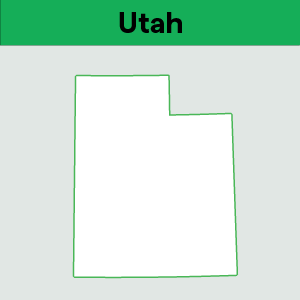What is the 1099-K form?
by February 2, 2025
Ever since they started landing in mailboxes a few years ago, tax form 1099-K has been a source of confusion for online sellers.
Today we want to clear up what form 1099-K actually is, who gets it, and what online sellers need to do with it when it arrives.
What is Form 1099-K?
The form 1099-K, for “Payment Card and Third Party Network Transactions” is the form sent to online sellers and federal taxing authorities by 3rd-party entities that handle their payments.
In layman’s terms? If you earn income and are paid through a payment processor like PayPal, Amazon, or Etsy in the last taxable year, then that company is required to report that you made that income and let you and the IRS know about it.
The 1099-K is a federal form, so this information is not reported to the individual state’s departments of revenue. The form is not related to sales tax.
Additionally, if you have an agreement with a credit card processor like Visa or MasterCard, you’ll receive a 1099-K if you process over $600 in income that year through that source. (This does not typically apply to most sellers reading this article!)
Why Form 1099-K?
The need for this form came about in 2008 as part of the Housing Assistance Tax Act. Lawmakers added a proviso requiring 3rd party payment processor reporting because research had shown that online sellers were not paying income tax on all income. (This may be true of some sellers, but can be very galling to online sellers who take great pains to be in compliance!)
Who receives Form 1099-K?
Form 1099-K is only sent to sellers (and the IRS) when that seller has processed over $20,000 in sales volume and 200 transactions with that processor.
For example, if you are a small seller who made 200 sales and $20,000 but collected half of that money through Amazon and half through PayPal, then neither Amazon nor PayPal is required to send you (and the IRS) a 1099-K.
The good news is that form 1099-K is not sent by payment processors to individual states departments of revenue. However, some states might require that you send a copy of form 1099-K along with your state income tax. Ask your tax preparer if you are unsure about this.
What should e-commerce sellers do with Form 1099-K?
Form 1099-K is informational only, meaning that you don’t have to do anything further with it – like attaching it with your income taxes – once it arrives.
What you should do is match it with your own financial records, ensuring that the payment processor reported your income correctly. Keep in mind that they report gross sales only, so it’s your job to enumerate deductions such as fees, refunds, supplies, postage, etc.
1099-K and the individual states
While form 1099-K is only required to be sent to the IRS, we have heard rumors from online sellers that the IRS allows state departments of revenue to view their 1099-K database. From there, presumably, these states could then investigate whether an in-state seller is remitting applicable sales tax. At TaxJar we are very serious about proving rumors. That said, collecting and remitting sales tax is the law in the vast majority of states where an online seller has nexus, so it is important to investigate your compliance whether you receive a 1099-K or not.
Cautions about Form 1099-K
If you receive a form 1099-K, keep these warnings in mind:
- The 1099-K only shows your gross sales – Fees that the payment processor charged you are not taken out of this number, and neither are refunds and returns. If you collected shipping revenue though, that amount is included in the gross sales reported on the 1099-K. Because of this, it’s very important that you keep track of your business expenses or else the IRS will have you on the hook for paying income tax on the total amount of gross sales reported on the 1099-K.
- Form 1099-K shows sales tax collected as part of your gross sales – Payment processors are not required to keep track of how much of your “gross sales” was actually sales tax that you are required to remit right back to state and local authorities. It’s up to you to use a service like TaxJar to track these amounts, or your income will end up over-reported to the IRS.
- Even if you don’t receive a form 1099-K, your income is still taxable – When form 1099-K first arrived on the scene, some online sellers confused this with a new method of tax reporting for online sellers. But the 1099-K’s true intent was to keep tabs on high-volume eCommerce sellers, not replace the way they report income. So even if you don’t receive a 1099-K from a payment processor, you still owe income taxes.
- The IRS will match your 1099-K income with the income you report – Starting in the fall of 2012, eCommerce sellers began receiving “1099-k match letters” from the IRS regarding a discrepancy between numbers reported on the 1099-K and seller’s income tax returns. Though a relatively small number of these letters were sent it, it’s important to make sure that your reported gross income is the same or higher than the amount reported on the 1099-K. And if it isn’t, you need to show proof of why.








